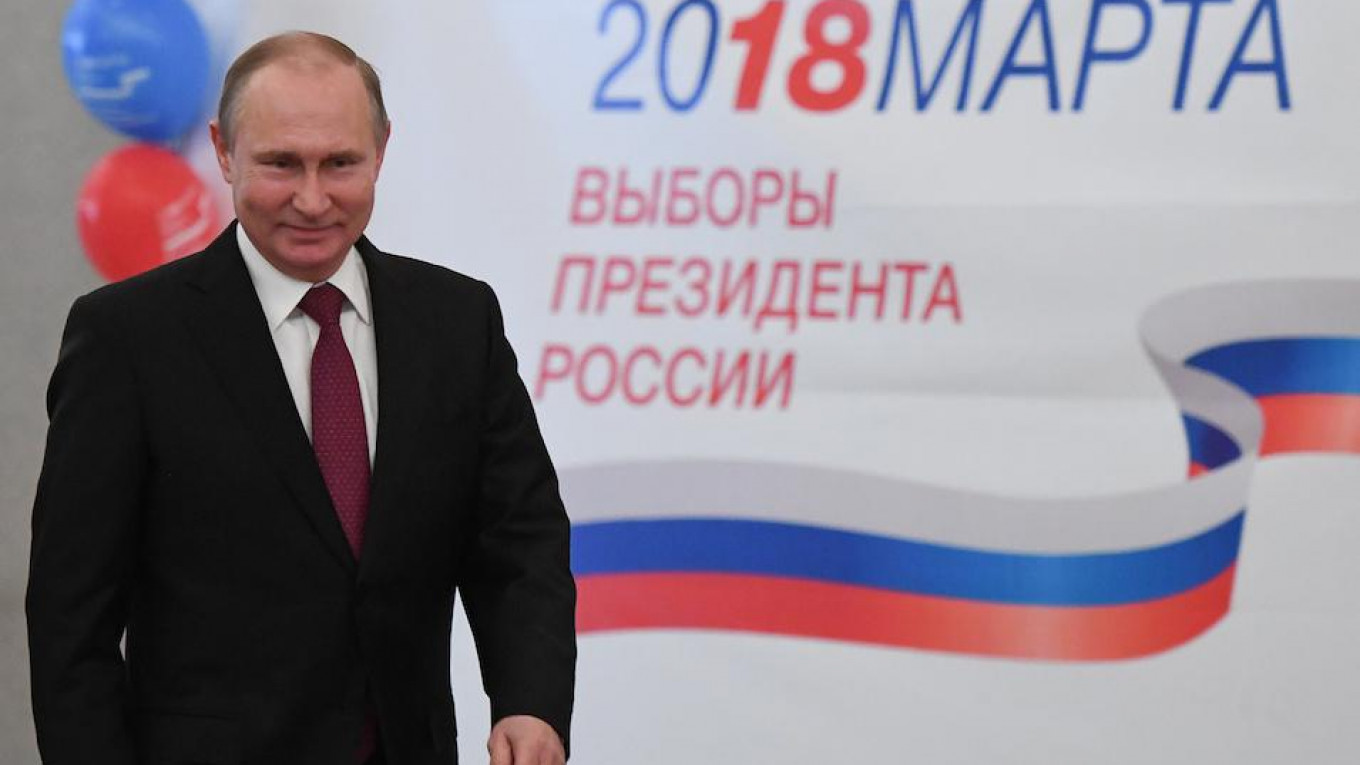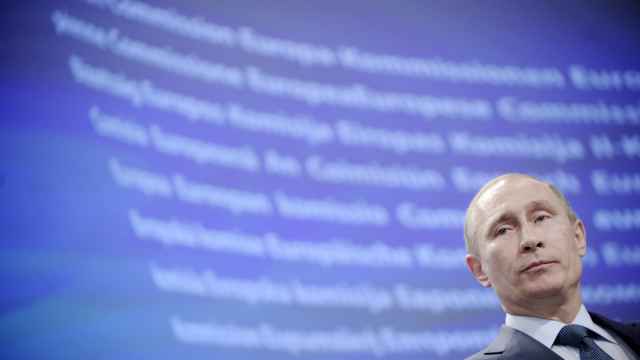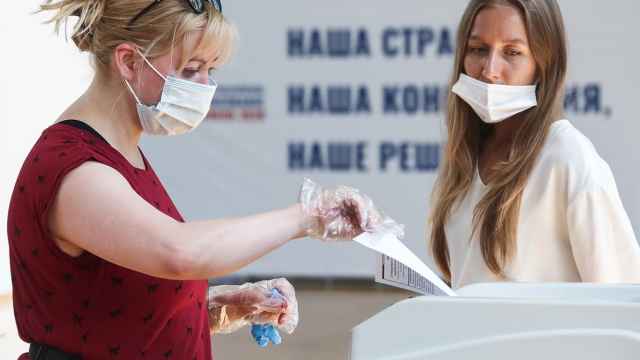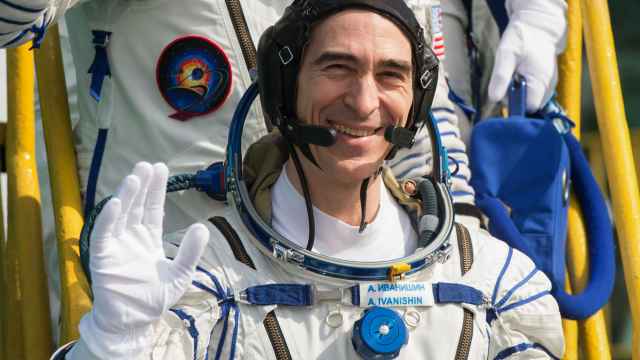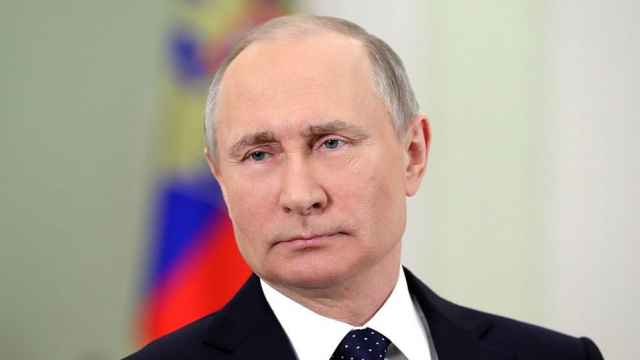Russian President Vladimir Putin won a landslide re-election victory on Sunday, extending his rule over the world's largest country for another six years at a time when his ties with the West are on a hostile trajectory.
Putin's thumping victory will extend his total time in office to nearly a quarter of a century, until 2024, by which time he will be 71. Only Soviet dictator Josef Stalin ruled for longer. Putin has promised to use his new term to beef up Russia's defences against the West and to raise living standards.
In a widely-expected result, an exit poll by pollster VTsIOM showed Putin, who has already dominated the political landscape for the last 18 years, had won 73.9 percent of the vote. Backed by state TV, the ruling party, and credited with an approval rating around 80 percent, his victory was never in doubt.
None of the seven candidates who ran against him posed a threat, and opposition leader Alexei Navalny was barred from running. Critics alleged that officials had compelled people to come to the polls to ensure that voter boredom at the one-sided contest did not lead to a low turnout.
Russia's Central Election Commission recognised that there were some irregularities, but were likely to dismiss wider criticism and declare the overall result legitimate.
Putin loyalists said the result was a vindication of his tough stance towards the West.
"I think that in the United States and Britain they've understood they cannot influence our elections," Igor Morozov, a member of the upper house of parliament," said on state television. "Our citizens understand what sort of situation Russian finds itself in today."
The immediate question is if and when opponents like Navalny organise protests, citing widespread fraud, and how large and sustained those protests will be. A senior opposition politician has warned they could descend into street clashes if police crack down too hard on demonstrators.
The longer-term question is whether Putin will soften his anti-Western rhetoric now the election is won.
Hostile Relations
Putin's bellicose language reached a crescendo before the election in a state-of-the-nation speech when he unveiled new nuclear weapons, saying they could hit almost any point in the world and evade a U.S.-built missile shield.
At odds with the West over Syria, Ukraine, allegations of Russian election meddling and cyber attacks, and the poisoning in Britain of a former Russian spy and his daughter, relations between Moscow and the West are at a post Cold War low.
Putin, 65, has been in power, either as president or prime minister, since 2000.
Allies laud the former KGB agent as a father-of-the-nation figure who has restored national pride and expanded Moscow's global clout with interventions in Syria and Ukraine.
Critics accuse him of overseeing a corrupt authoritarian system and of illegally annexing Ukraine's Crimea in 2014, a move that isolated Russia internationally.
Western sanctions on Russia imposed over Crimea and Moscow's backing of a pro-Russian separatist uprising in eastern Ukraine remain in place and have damaged the Russian economy, which only rebounded last year after a prolonged downturn.
Britain and Russia are also locked in a diplomatic dispute over the spy poisoning incident, and Washington is eyeing new sanctions on Moscow over allegations it interfered in the 2016 U.S. presidential election, something Russia flatly denies.
Officials and analysts say there is little agreement among Putin's top policymakers on an economic strategy for his new term.
How long Putin wants to stay in power is uncertain.
The constitution limits the president to two successive terms, obliging him to step down at the end of his new mandate -- as he did in 2008 after serving two four-year terms. The presidential term was extended from four to six years, starting in 2012.
Although Putin has six years to consider a possible successor, uncertainty about his long-term future is a potential source of instability in a fractious ruling elite that only he can keep in check.
Kremlin insiders say Putin has selected no heir apparent, and that any names being circulated are the product of speculation, not knowledge of Putin's thinking.
"The longer he stays in power, the harder it will be to exit," said Andrei Kolesnikov, senior fellow at the Carnegie Moscow Center, a think tank. "How can he abandon such a complicated system, which is essentially his personal project?"
A Message from The Moscow Times:
Dear readers,
We are facing unprecedented challenges. Russia's Prosecutor General's Office has designated The Moscow Times as an "undesirable" organization, criminalizing our work and putting our staff at risk of prosecution. This follows our earlier unjust labeling as a "foreign agent."
These actions are direct attempts to silence independent journalism in Russia. The authorities claim our work "discredits the decisions of the Russian leadership." We see things differently: we strive to provide accurate, unbiased reporting on Russia.
We, the journalists of The Moscow Times, refuse to be silenced. But to continue our work, we need your help.
Your support, no matter how small, makes a world of difference. If you can, please support us monthly starting from just $2. It's quick to set up, and every contribution makes a significant impact.
By supporting The Moscow Times, you're defending open, independent journalism in the face of repression. Thank you for standing with us.
Remind me later.


